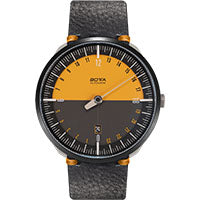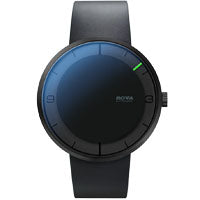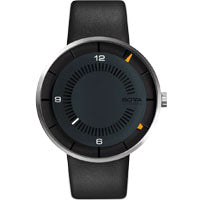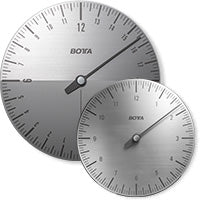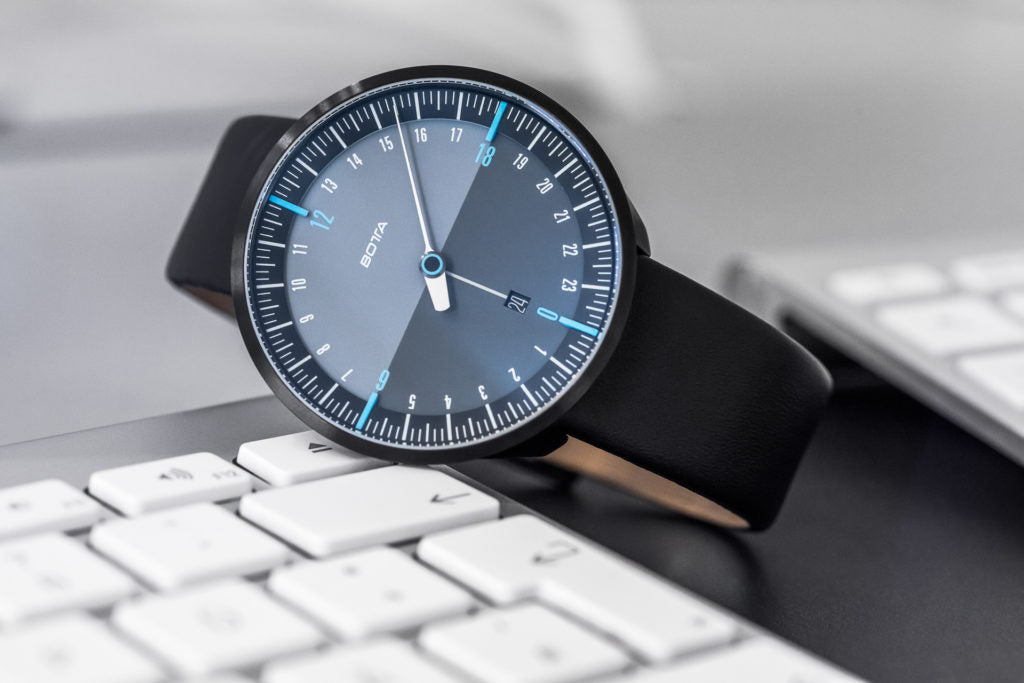The first wristwatches changed the way time was perceived. These days, conventional wristwatches tend to be underestimated – for example as far as their technical complexity is concerned, simply because they are so small. However, if one considers how much work goes into crafting a high-quality mechanical movement it is clear that this motor may be small but is definitely high-tech.
Furthermore, people tend to overlook the impact a wristwatch has. Every watch conveys messages about the person who is wearing it, but also to the wearer him- or herself. A wristwatch is never chosen randomly, as conscious or unconscious values and wishes influence the decision. Depending on the model and design, the watch can exude complexity and increase stress – or radiate calm, serenity and composure.
Smartwatches – the better all-rounders
Smartwatches and fitness trackers are all vying with conventional wristwatches for that coveted place on our wrists. Admittedly, they are the better all-rounders: they let us know when we have a new text message or e-mail, show us the latest weather forecast, track our physical activities – and some can even be used to make a phone call. Displaying the time is merely incidental and serves mainly as a screensaver.A conventional wristwatch cannot do any of this – all it does is present the time (and perhaps the date).
An analogue watch has no chance of competing with a smartwatch from a purely functional viewpoint, in other words. If functionality were all that we were interested in, there would be no mechanical watches at all any more. Quartz movements are far superior to mechanical movements in terms of accuracy, durability and price. And yet mechanical movements are still being made – and surprisingly, to an even greater extent than before the first quartz watches appeared.
An emotional decision in favour of calm and security – and analogue watches
And why? Because humans are not merely rational creatures but are heavily influenced by emotions. Indeed to a much greater degree than by reason, whether one realizes it or not. This explains why gadgets that are simply too perfect begin to become boring or even annoying. We humans are entirely analogue, and we love products that are similar in nature to ourselves. This is simply because we can judge and understand them more easily. This also explains the renaissance of analogue record-players and audiotape devices, which are becoming increasingly popular again.
Digital technology fascinates us and of course has every right to exist – especially in the work context. By contrast, analogue technology has a much more engaging and leisurely feel to it; because it is limited to a single function, it exudes calm and security.

An analogue watch will not disturb one with a phone call or text message at just the wrong moment. It does not need to be recharged, updated or synchronized. There is no need for backups, and there are no compatibility issues with other devices. An analogue watch means calm and stability – some more than others, depending on the model and design. On the other hand, a smartwatch with its multitude of functions is much more the embodiment of a work device that imposes data and obligations on one.
Not a question of one or the other
“I am very optimistic about the future of analogue wristwatches. Ultimately, it is not a question of “one or the other”, but of “when and how”. Many of our customers report that they wear their smartwatches at work or for sport but then switch to their UNO the moment their leisure time begins.”
Klaus Botta


